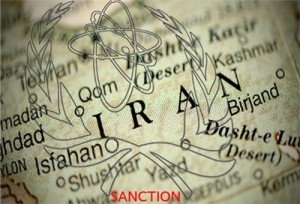 As Iran meets world powers in Geneva on Wednesday for�this month�s second round of talks�on its nuclear programme, there is much self-congratulation about the supposed effectiveness of the sanctions after decades of intransigence.
As Iran meets world powers in Geneva on Wednesday for�this month�s second round of talks�on its nuclear programme, there is much self-congratulation about the supposed effectiveness of the sanctions after decades of intransigence.But the idea that it is sanctions that have�brought Tehran to the table�is wrong. The real cause is the desire of new President Hassan Rouhani to reach a rapprochement with the US, the EU, its neighbours and other world powers, alongside the fact that the US red line has changed from �no enrichment of uranium� to �no nuclear bomb�.
In fact, Tehran has not left the table since the start of talks in 2003, even under Mahmoud Ahmadi-Nejad. While I was a member of the Iranian nuclear negotiating team from 2003 to 2005, the country was not under crippling sanctions. Yet in March 2005 it suggested strong measures similar to recent proposals: first, to ensure transparency at its nuclear sites; and second, on objective guarantees not to divert its nuclear programme towards weaponisation.
Proposals included implementing the International Atomic Energy Agency Additional Protocol enabling on-site inspections; limiting the expansion of the enrichment programme; capping enrichment at 5 per cent, enabling its use for fuel but not weapons; and converting all enriched uranium to fuel rods, ensuring there would be no reprocessing and plutonium separation at the heavy water reactor southwest of Tehran � a process that could facilitate weaponisation. Tehran also suggested rules to guarantee the permanent ban on developing, stockpiling and using nuclear weapons in return for respect for its right to enrich uranium under the nuclear non-proliferation treaty. The proposals are similar to demands Fran�ois Hollande, the French president, made of Iran on his trip to Israel on November 17.
The talks failed in 2005 as a result of US insistence on preventing Iran from exercising its legitimate rights to enrichment. The west missed the chance to resolve the disagreement and instead imposed sanctions. Contrary to the claims of some US lawmakers and Israeli officials, sanctions only caused a dramatic rise in nuclear capability, as Tehran sought to show it would not respond to pressure. Before, Iran was enriching uranium to below 5 per cent at one site with 3,000 centrifuges and possessed a minute stockpile of enriched uranium. Today, it is enriching to 20 per cent at two sites with 19,000 centrifuges. It has a stockpile of 8,000kg of enriched uranium and more sophisticated centrifuges.
A draft agreement reached between Iran and the six powers (except France) in the first round of the Geneva talks covers all the world powers� big concerns.�France blocked that deal�because it was drafted primarily by Iran and the US, to the exclusion of other nations. Furthermore, Israel succeeded in pressing France not to compromise. Israel also campaigned for the US Congress to block the draft and to impose more aggressive sanctions on the grounds that this would force Iran into making more concessions.
The Obama administration is seeking to avoid a war in the region that would jeopardise American lives; Benjamin Netanyahu, the Israeli prime minister, wants to take military action because it is in line with his vision of eliminating the Islamic Republic as a regional power. Mr Obama and Congress should prioritise American lives as the supreme national interest. Detente with Tehran is the short and long-term US interest in the region.
Like Russia, other European countries and China, the Obama administration is optimistic that the world powers and Iran can reach a deal. Overstressing sanctions and undervaluing the opportunities offered by the Iranians could lead once more to unintended consequences � this time potentially disastrous. Instead, the world powers should grab this opportunity, bring an end to years of negotiations and end up with a realistic, face-saving and peaceful resolution to the nuclear dilemma, opening the door for co-operation on peaceful crisis management in the Middle East.
By Financial Times�
The Iran Project is not responsible for the content of quoted articles.










